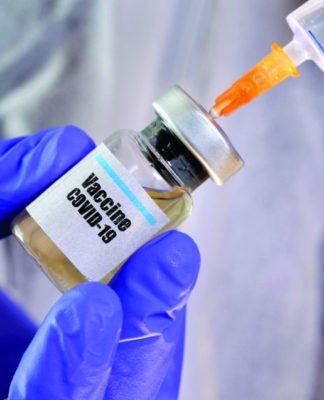Impeachment trial against Trump based on ‘cold, hard facts’, says prosecutor
Issued on: Modified:

The lead prosecutor in the impeachment trial of former US president Donald Trump said Tuesday his case was based on “cold, hard facts”, and proceeded to present video evidence that Trump incited violence on January 6.
The historic second impeachment trial of Trump began with debate on whether trying an ex-president is indeed constitutional.
Lead House impeachment manager Jamie Raskin, a Democratic lawmaker from Maryland, told senators he would not bore them with professorial speak, saying: “You will not be hearing extended lectures here from me because our case is based on cold, hard facts.”
Raskin and the House of Representatives Democrats serving as prosecutors opened their case by showing video of Trump supporters violently overwhelming police at the Capitol in the Jan. 6 attack after he had encouraged people in a speech to “fight like hell” to overturn his Nov. 3 election defeat.
“If that’s not an impeachment offense, then there is no such thing,” Raskin, who led the prosecution, told the assembled senators — serving as jurors — after showing the video.
The video showed Trump backers throwing down barriers and hitting police officers. It showed the moment that protesters tried to break through the doors of the House chamber as lawmakers sheltered within, including when a police officer shot and killed a protester, US Air Force veteran Ashli Babbitt, as she tried to climb through a broken window.
In another scene, a rioter sifting through the contents of the desk of a lawmaker can he heard saying, “There’s got to be something here we can use against the scumbags.”
In the Capitol assault, the mob attacked police, sent lawmakers scrambling for safety and interrupted the formal congressional certification of President Joe Biden’s victory after Trump had spent two months challenging the election results. Five people died, including a police officer.
Some 170 police officers were injured.
Trump was impeached by the Democratic-led House on Jan. 13 on a charge of inciting an insurrection. Democrats hope to disqualify Trump from holding public office again.
Trump is the first president ever to face two impeachment trials — he was acquitted in 2020 of abuse of power — as well as the first in history to be tried after leaving office. He appears likely to be acquitted thanks to support from fellow Republicans in the narrowly divided Senate. Convicting Trump would require a two-thirds majority, meaning that at least 17 Republicans would need to join the Senate’s 48 Democrats and two independents in voting against Trump.
‘Gravest charges’
Senate Majority Leader Chuck Schumer, a Democrat, called the accusation against Trump: “The gravest charges ever brought against a president of the United States in American history.”
Before the attack, Trump claimed falsely that widespread voting fraud lost him the election to Biden. Senators watched video of Trump addressing supporters at a rally that preceded the attack, repeating his false claims of election fraud.
“The impeachment, conviction and disqualification powers exist to protect us against presidents who try to overrun the power of the people in their elections and replace the rule of law with the rule of mobs,” Raskin told the senators.
Raskin said presidents would create a “January exception” that allowed them to break the law with impunity in the last month of their term if senators did not convict Trump.
Defense lawyers plan to argue that only a sitting president can face an impeachment trial. But a majority of legal experts say it is constitutional to have the trial after an official has left office, said Michigan State University law professor Brian Kalt, a leading impeachment scholar.
Senate Democrats are expected to prevail in a Tuesday vote on the constitutionality of the trial. A Republican effort to block the trial on those grounds was defeated 55-45 last month.
The trial is being held with extraordinary security around the Capitol in the wake of the siege, including armed security forces and a perimeter of fencing and razor wire.
Tumultuous four years
The trial could provide clues on the direction of the Republican Party following Trump’s tumultuous four-year presidency.
Sharp divisions have emerged between Trump loyalists and those hoping to move the party in a new direction. Meanwhile, Democrats are concerned the trial could impede Biden’s ability to swiftly advance an ambitious legislative agenda.
Daily newsletterReceive essential international news every morning
Trump’s defense has also argued he was exercising his right to free speech under the Constitution’s First Amendment when he addressed supporters at a rally in Washington on the day of the Capitol attack.
Democratic Senator Patrick Leahy is presiding over the trial, which will begin with hours of debate, followed by a vote, on the constitutionality of trying an ex-president.
This will almost certainly be just a formality as the Democrats have enough votes, but it will give an early indication of how open Republicans are to the case at all.
The main part of the trial will start Wednesday, with each side having 16 hours to present oral arguments.
(FRANCE 24 with AFP and REUTERS)






























